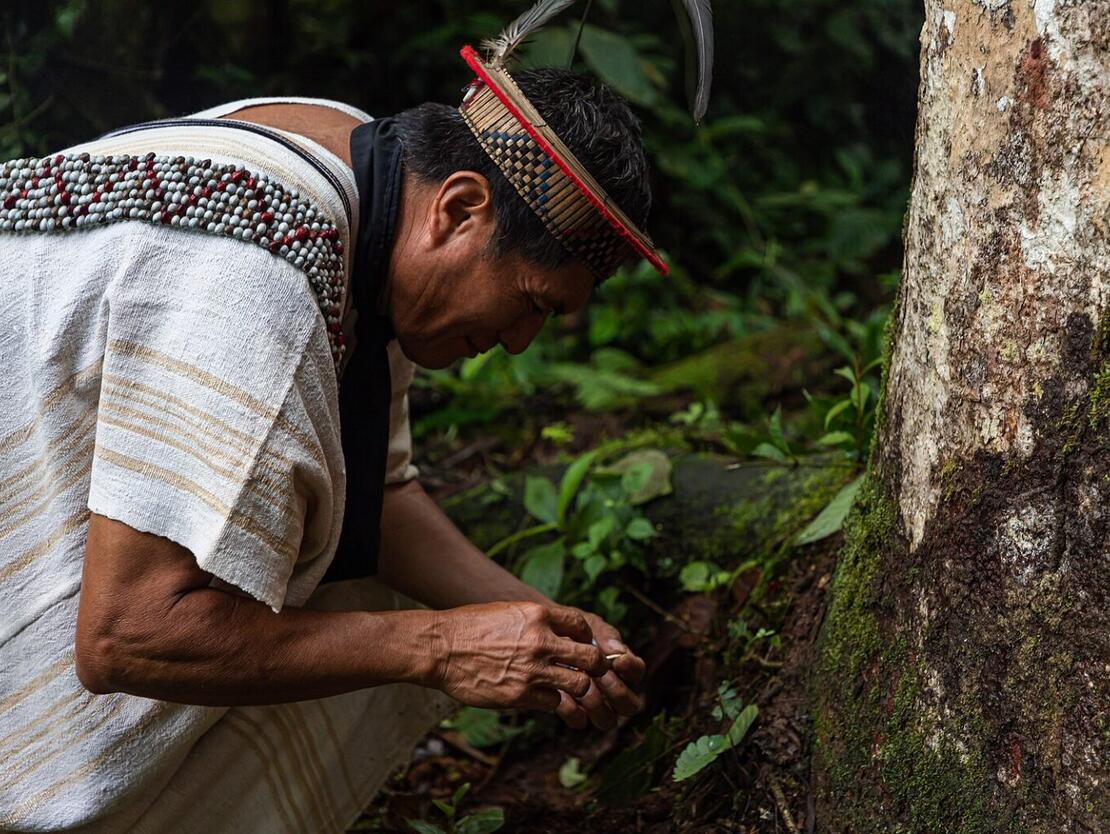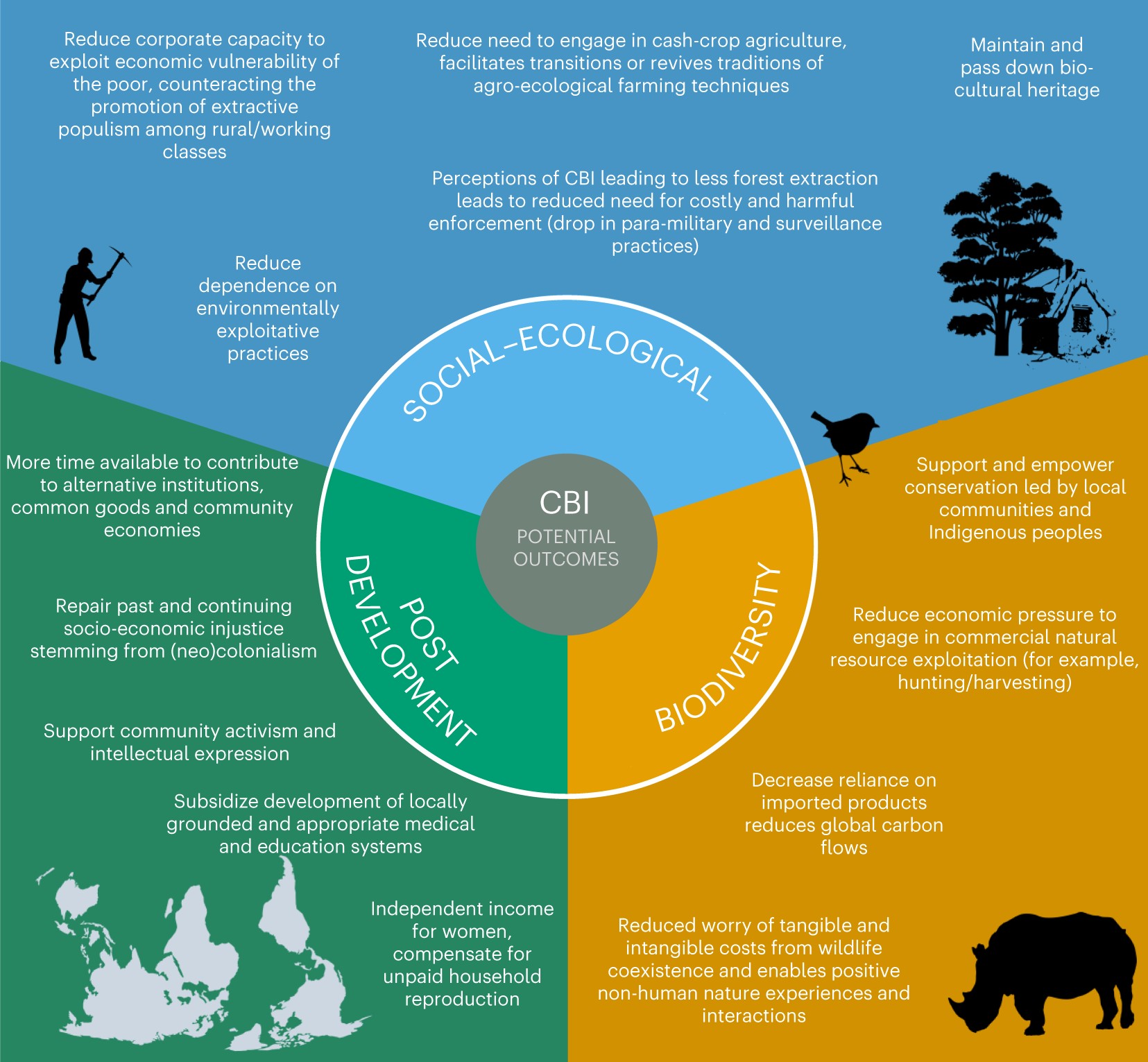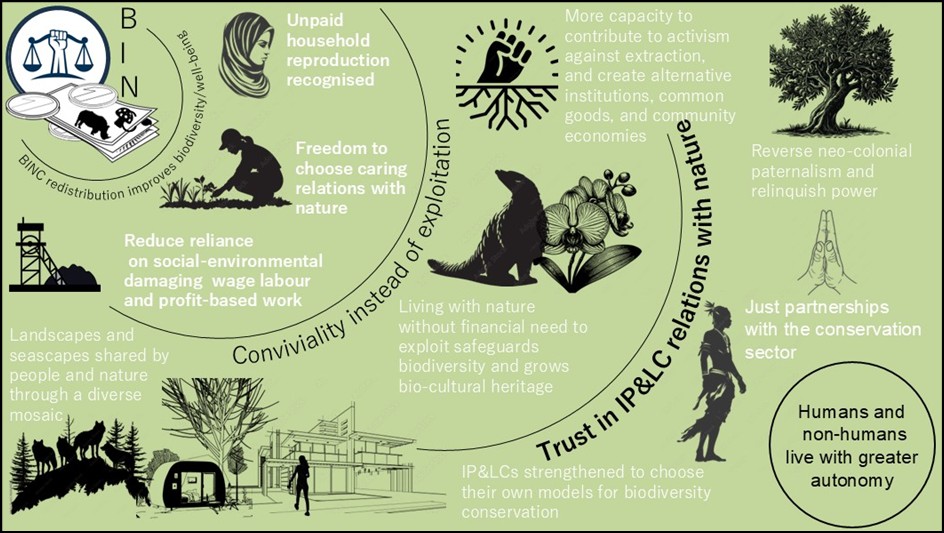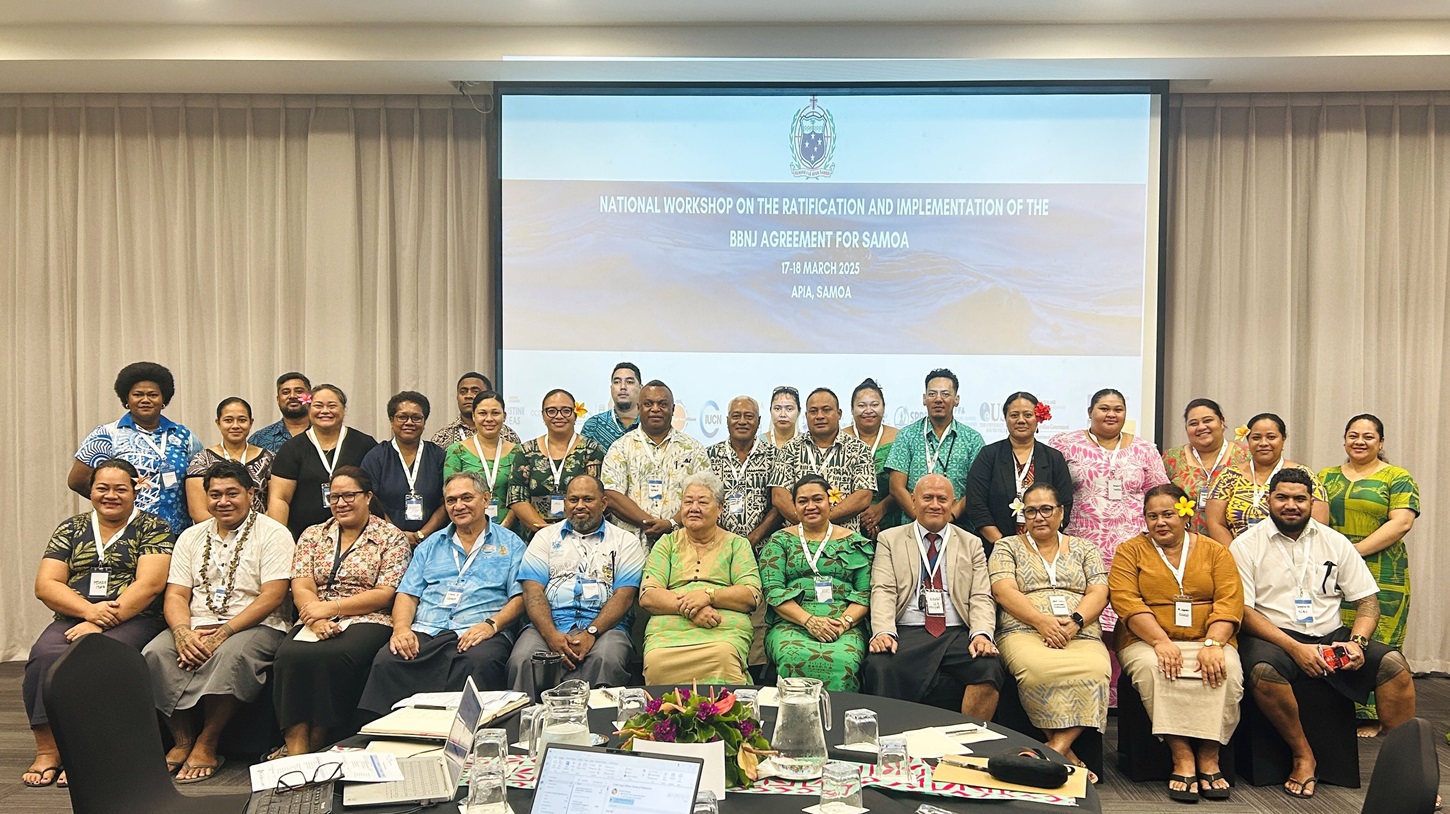Transformative Justice in Conservation Finance: Basic Income for Nature and Climate (BINC)
Robert Fletcher and colleagues present Basic Income for Nature and Climate (BINC), an innovative funding mechanism that directly addresses social justice and ecological conservation simultaneously.

What is BINC?
Basic Income for Nature and Climate (BINC) is a new transformative mechanism for funding biodiversity conservation and climate change mitigation activities. BINC combines core Basic Income (BI) principles with environmental goals, aiming to protect biodiversity and mitigate climate change while empowering local resource users and reducing social inequity. Building on earlier proposals for a biodiversity-focused conservation basic income, BINC offers regular unconditional payments to communities near critical conservation or climate areas to support sustainable livelihoods, assisting communities in reducing their dependence on exploitative, unsustainable resource extraction for cash income.
Why BINC?
BINC pursues transformative justice by recognizing the capacities, potentials, and rights of Indigenous Peoples and Local Communities (IP&LCs). By reducing oversight, cutting bureaucracy, and bypassing intermediaries, BINC directly empowers local communities that steward biodiversity hotspots.

Figure 1. Potential BINC benefits (source)
Unlike widespread yet predominantly ineffective market-based instruments (MBIs), BINC does not tie payments to specific behaviors or economic valuation of natural resources. BINC is intended primarily to help meet the shortfall in cash income that so often drives a wedge between the environmental futures IP&LCs aspire to, and their social reality.

Figure 2: BINC Theory of Change (illustrated by Omar Saif)
How to Fund BINC?
A key challenge for BINC is securing sustainable funding without relying on global environmental markets. Researchers have calculated that funding BINC globally would likely cost between USD 351 billion and 6.73 trillion annually depending on the number of recipients and level of payment. Yet these sums are well within the scope of what is projected as necessary for global conservation and climate action anyway in the future. It is estimated that between 1/3 and 1/4 of the world’s total wealth is hidden in offshore tax havens. Global subsidies for environmentally harmful activities such as fossil fuel and conventional agricultural production are also estimated at USD 2.6 trillion per year. If even a portion of these funds were directed to BINC, it could easily fund implementation of a substantial international programme.
Scaling Up BINC for a Just and Sustainable Future
While BINC is not a silver bullet, it is potentially the most scalable mechanism to address the polycrisis of climate breakdown, biodiversity loss, and social inequality. BINC should be part of a broader, more comprehensive program for transformative change that includes attention to other dynamics, including directly confronting powerful extractive industries encroaching on local conservation spaces and establishing a broader governance framework entailing enabling conditions. This must entail, in particular, the formalization of land and tenure rights for IPLCs, since many of them live on lands that already contribute to conservation outcomes.
The next step is to learn from existing projects, particularly a first BINC initiative in the Peruvian Amazon, and use this learning to replicate BINC projects in other sites and at greater scale, in collaboration with local partners.
Interested in the full article? Check out the next issue of Policy Matters, coming October 2025.
Disclaimer
Opinions expressed in posts featured on any Crossroads or other blogs and in related comments are those of the authors and do not necessarily reflect the opinions of IUCN or a consensus of its Member organisations.
IUCN moderates comments and reserves the right to remove posts that are deemed inappropriate, commercial in nature or unrelated to blog posts.

